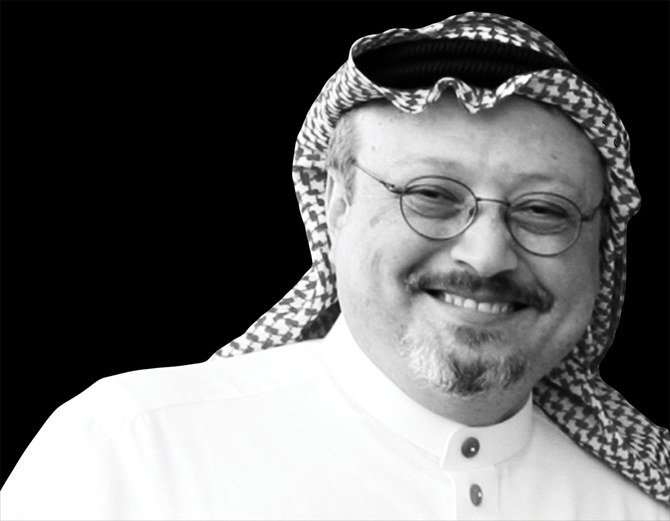
- ARAB NEWS
- 04 Jul 2025

The three words in the headline on this page today will, for many, have a familiar ring. That is because for the past 14 months, in addition to being a rallying cry for the worthy cause of protecting freedom of speech, they have been hijacked and parroted as a hashtag by agenda-driven individuals and countries whose own commitment to justice is at least questionable.
Now, however, with Monday’s conviction and sentencing of eight people for the murder of Jamal Khashoggi in the Saudi Consulate in Istanbul in October 2018, the words “Justice for Jamal” have been returned to the only place where they actually mean something — a Saudi court of law. As Jamal’s son Salah said after the verdict, the court “has done us justice, the children of … Jamal Khashoggi. We affirm our confidence in the Saudi judiciary.”
Moreover, this was no rush to summary justice, no hurried attempt to bury the crime and move on. Instead, over nine separate hearings attended not just by representatives of the international community but by members of the victim’s family, the court heard testimony, weighed the evidence, and reached its verdict.
Some people, of course, were never going to be happy, whatever that verdict; countries with an axe to grind such as Qatar and Iran have their own malign agendas, and will grasp any stick, however flimsy, with which to beat Saudi Arabia.
The conduct of Turkey has been particularly reprehensible; having taken unconcealed delight in flooding their own compliant media with selective leaks of lurid accounts of events in the consulate that day, the Turkish authorities then refused — despite countless requests from Saudi Arabia — to cooperate and submit that “evidence” for examination in a Saudi court. It is reasonable to wonder whether Turkey’s motive has been the quest for justice, or the embarrassment of Saudi Arabia.
This horrific crime shocked the world. In particular, it shocked Saudi Arabia, because it is so alien to our culture.
Faisal J. Abbas
It would be wrong, however, to suggest that all those who have demanded “Justice for Jamal” have done so with malevolent intent, and it is not our intention here to tar all critics with the same brush; we ourselves, after all, were among them. This horrific crime shocked the world. In particular, it shocked Saudi Arabia, because it is so alien to our culture. And as I have written before on these pages, it shocked me: Jamal Khashoggi was a former deputy editor of this newspaper, a former colleague and personal friend, subjected to an unspeakable ordeal in a place where he was entitled to feel safe. Saudis, too, want “Justice for Jamal.”
There is concern in some quarters that two senior officials have been absolved of responsibility for the murder; one was acquitted by the court, and the other was investigated but not charged. While this concern is in most cases genuine and well intentioned, it is misplaced, for two reasons.
First, let us not forget that the murder of Jamal Khashoggi has done untold harm to Saudi Arabia — to its reputation, to its economy, to its attempts to attract overseas investment and support for the ambitious Vision 2030 program of social and economic reform. As Crown Prince Mohammed bin Salman pointed out: “The threat to Saudi Arabia is from such actions against a Saudi journalist.”
The idea that anyone who genuinely has the interests of the Kingdom at heart would order this appalling act, far less carry it out, flies in the face of logic and common sense.
Second, it is a prime requisite for a criminal conviction that an accused person’s guilt must be proved beyond reasonable doubt. “They must have known” is a glib accusation, but it is not evidence — and it is on the evidence, and the evidence alone, that those who killed Jamal Khashoggi have been convicted.
This is not over. There may be appeals, both by those convicted, and by prosecutors. But Monday’s verdicts were a giant step in a necessarily complex process — and those who genuinely seek “Justice for Jamal” may rest assured that, in the end, it will be served.
Faisal J. Abbas is the editor in chief of Arab News.
Twitter: @FaisalJAbbas